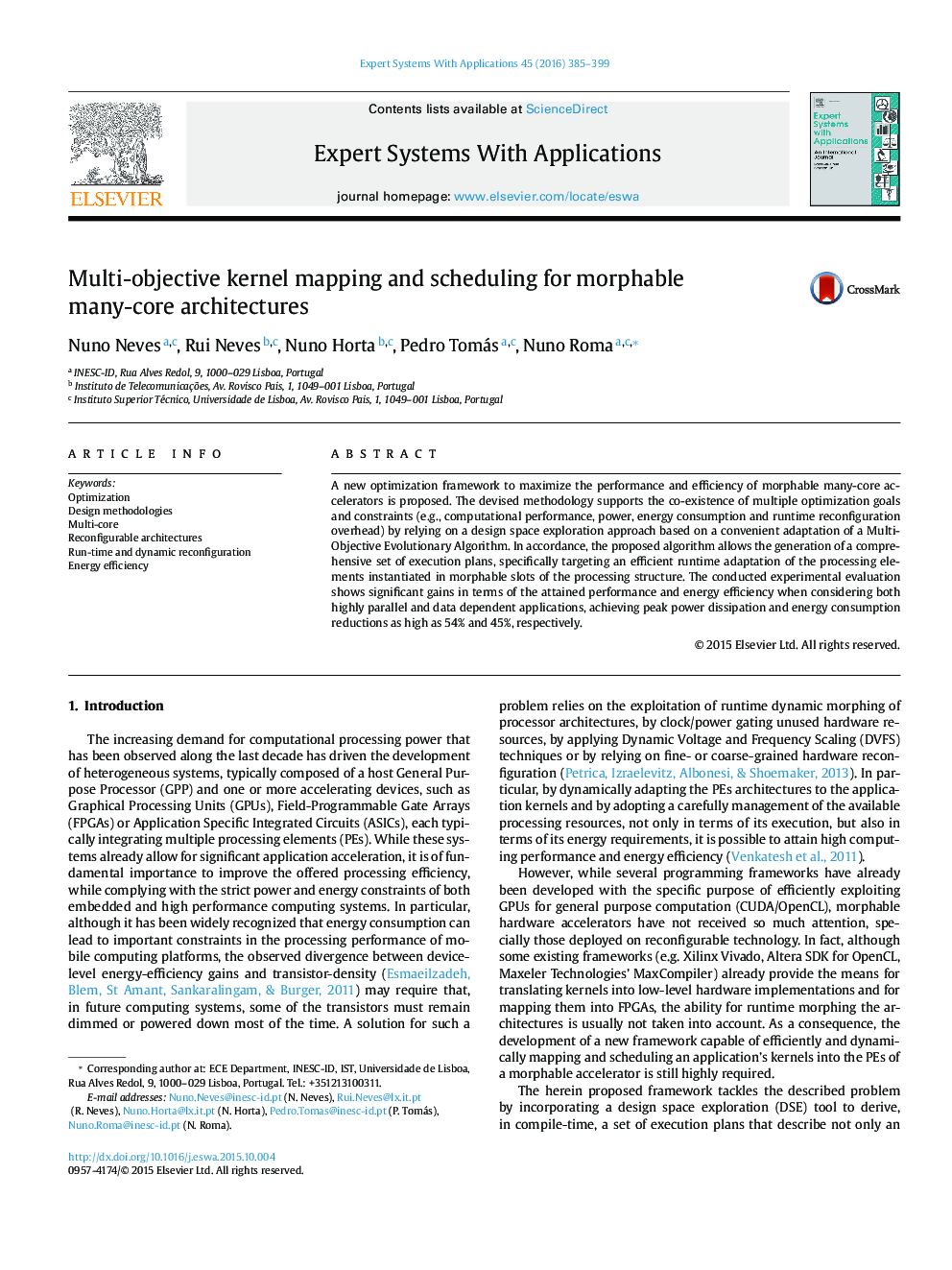| Article ID | Journal | Published Year | Pages | File Type |
|---|---|---|---|---|
| 382469 | Expert Systems with Applications | 2016 | 15 Pages |
•Novel compile-time design space exploration methodology for morphable architectures.•Optimized execution plans for runtime scheduling of application kernels are defined.•Application performance and energy consumption are taken as optimization constraints.•Execution, communication and morphing overheads are considered by the methodology.•The execution plans can be switched in runtime to adapt to dynamic workload changes.
A new optimization framework to maximize the performance and efficiency of morphable many-core accelerators is proposed. The devised methodology supports the co-existence of multiple optimization goals and constraints (e.g., computational performance, power, energy consumption and runtime reconfiguration overhead) by relying on a design space exploration approach based on a convenient adaptation of a Multi-Objective Evolutionary Algorithm. In accordance, the proposed algorithm allows the generation of a comprehensive set of execution plans, specifically targeting an efficient runtime adaptation of the processing elements instantiated in morphable slots of the processing structure. The conducted experimental evaluation shows significant gains in terms of the attained performance and energy efficiency when considering both highly parallel and data dependent applications, achieving peak power dissipation and energy consumption reductions as high as 54% and 45%, respectively.
